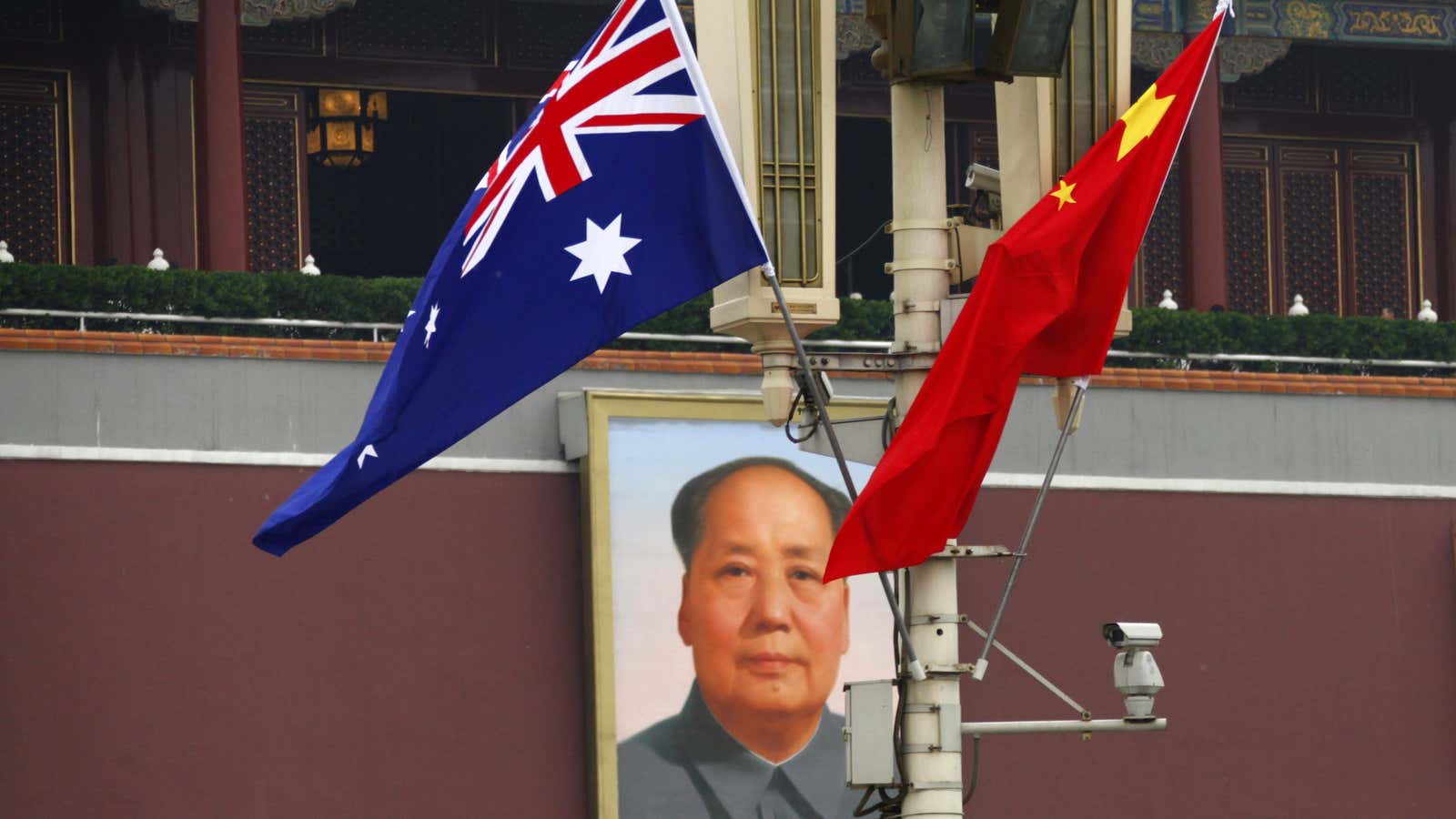Sydney and Melbourne have canceled controversial tribute concerts marking the 40th anniversary of the death of Mao Zedong, which were scheduled for the beginning of September.
The events touched a nerve in Australia, which has a large Chinese diaspora community, many of whom found the idea of celebrating the life of one of history’s most brutal dictators offensive. A group called the Embrace Australian Values Alliance created petitions online directed at the mayor and city councilors of both cities, asking them to cancel the events.
The event slated for Sep. 6 at Sydney Town Hall is “not going ahead due to concerns over public and patron safety,” a spokesperson for the City of Sydney said in a statement. “After consultation with the NSW (New South Wales) Police Force the City has a number of concerns regarding the potential for civil disturbance, patron to patron conflict and staff to patron conflict.”
The City of Sydney also said that it had concerns over the event’s ticketing arrangements, “with many tickets already having been distributed for free through community networks, with no standard controls such as numbering, bar coding and or counterfeit prevention and no specified conditions of entry.”
A spokesperson for Melbourne City Council told Quartz that the event had been canceled by the organizer.
The concert planners were also behind celebrations marking the 70th anniversary of China’s war against Japan last year, the Sydney Morning Herald noted.
In a statement in Chinese circulating on Chinese messaging app WeChat, the Embrace Australian Values Alliance welcomed the City of Sydney’s decision, and said that “the resistance against Maoism’s invasion into Australia and its damage against Australia’s free and democratic way of life is just beginning.” It said it would continue to organize more events to raise awareness among Australians of the “dangers of Mao poison and red poison.”
The Mao concerts come as Canberra’s relationship with Beijing is under immense scrutiny, because concerns about China’s economic and political influence in the country are rising. China is Australia’s biggest trading partner and a large investor in strategically important industries such as food and agriculture.
The Australian government recently blocked a Chinese bid for state-owned power network Ausgrid, drawing sharp rebuke from the Chinese government that Canberra was engaging in unfair protectionism. Today, Australian media also reported that an Australian senator supported China’s position in the South China Sea dispute after receiving financial help from a Chinese donor. Worries are also growing over China’s growing control over Australia’s media industry, particularly Chinese-language media.




